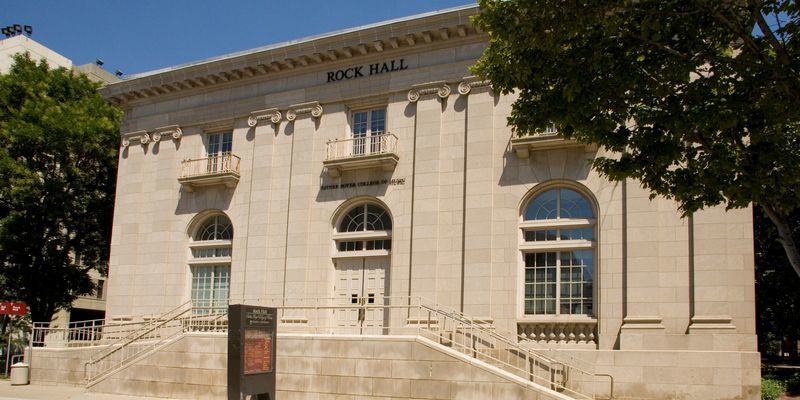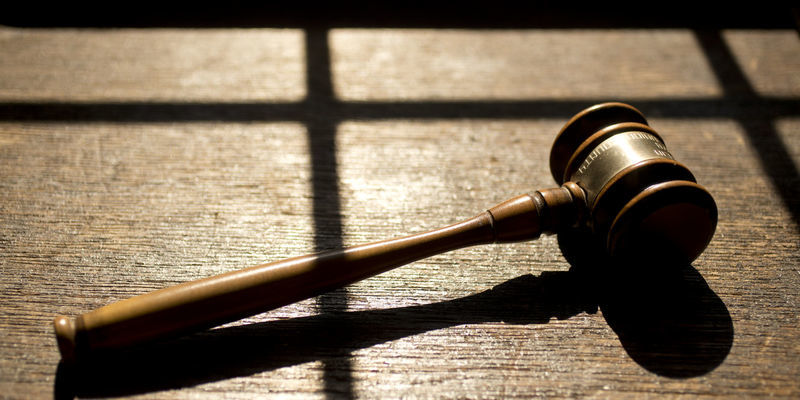Your guide to the upcoming Supreme Court cases on student loan forgiveness
On Feb. 28 the Supreme Court is scheduled to hear arguments related to two lawsuits challenging President Biden’s student loan forgiveness plan.

When the Biden administration announced their student loan forgiveness plan on Aug. 24, 2022, they hoped to provide relief for the more than 40 million Americans who took out federal student loans to pay for their education. They believed it would support these Americans, who are drowning in $1.63 trillion of federal student loan debt, recover from the economic turmoil caused by the COVID-19 pandemic.
The intention of the plan was to erase up to $20,000 of student loan debt for eligible borrowers, who celebrated the news and rushed to fill out the form that promised to wipe away at least a portion of their debt. But before the plan could take effect, it came to a grinding halt.
Two lawsuits were filed against the Biden administration for their student debt relief plan and a nationwide injunction was issued. Now the Supreme Court is scheduled to hear arguments related to the plan later this month.
The challenges the Biden administration has faced in rolling out its loan forgiveness plan have resulted in plenty of confusion and left many with questions: Who is suing the Biden administration over their loan forgiveness plan? How did student loan forgiveness end up in the Supreme Court? How will the Supreme Court’s ruling affect people with federal student loans?
Mark Rahdert, professor of constitutional law at Beasley School of Law, breaks down the lawsuits challenging the Biden student loan forgiveness plan and discusses the potential impacts of the upcoming Supreme Court cases.
Key takeaways
- Two separate lawsuits are challenging the Biden administration’s student loan forgiveness plan, temporarily preventing the administration from moving forward with the plan.
- The Biden administration is now seeking a ruling in their favor from the Supreme Court in order to continue administering their student loan forgiveness plan.
- The Supreme Court will begin hearing arguments related to both cases on Feb. 28, 2023.
- The parties challenging the loan forgiveness plan must first prove to the court that they have the legal right to sue the Biden administration. Rahdert says this could be a key issue in the cases.
- A few different outcomes are possible depending on the Supreme Court’s decision, and Rahdert says it is also possible for both cases to be dismissed by the court.
How did the student loan forgiveness plan end up in the Supreme Court?
In order to cancel federal student loan debt, the Biden administration is relying on the Higher Education Relief Opportunities for Students (HEROES) Act of 2003, which gives the secretary of education the authority to modify student loans in response to national emergencies like the COVID-19 pandemic.
However, shortly after the Biden administration announced the student loan debt relief program, two lawsuits, Biden v. Nebraska and Department of Education v. Brown, were filed with the intent to block the program from going into effect.
Biden v. Nebraska is a lawsuit against the Biden administration filed collectively by six states: Nebraska, Arkansas, Iowa, Kansas, Missouri and South Carolina. Last October, a federal appeals court from St. Louis issued a nationwide preliminary injunction on the Biden plan as it reviewed the Biden v. Nebraska case. The injunction temporarily bars the Biden administration from moving forward with their student loan forgiveness plan.
In order to have this injunction lifted, the Biden administration must now seek a favorable ruling from the Supreme Court.
The second lawsuit, Department of Education v. Brown, originated in Texas and involves two student loan borrowers, Myra Brown and Alexander Taylor. Last November, a federal judge from Texas ruled against the Biden administration, arguing that the HEROES Act does not authorize the secretary of education to cancel student loan debt the way the Biden administration intends.
After a federal appeals court rejected a request from the Biden administration to overturn the Texas judge’s ruling, the Supreme Court announced it would hear arguments related to Department of Education v. Brown as well as Biden v. Nebraska in 2023.
What will happen when the student loan forgiveness cases go to the Supreme Court?
The Supreme Court will begin hearing both cases on Feb. 28. The parties opposing Biden’s plan, referred to here as challengers, will first have to prove to the Supreme Court that they have the legal right to sue the Biden administration. In order to prove this, Rahdert says the challengers must demonstrate that they are being harmed by the loan forgiveness plan, and that the harm can be fixed through judicial action.
“The Biden administration’s view is that none of the challengers has the legal right to bring these court cases forward,” said Rahdert.
In Department of Education v. Brown, Brown and Taylor are two individuals who have already repaid their student loans in full. They are arguing that Biden’s student loan forgiveness plan harms them because they would not be able to receive loan forgiveness under the plan. According to Rahdert, there is an obvious flaw in this argument. The Biden plan provides debt relief to other student loan borrowers but that doesn’t mean that Brown and Taylor are being harmed.
“What they’re asking for is an extra benefit, not relief from harm. Moreover, there’s no way to fix that through judicial action. It’s not like a federal court could order the secretary of education to expand the range of debt relief,” said Rahdert.
In Biden v. Nebraska, the states are arguing that the Biden plan harms them because they could lose out on tax revenue if individuals from their state are relieved of obligations to repay their student loans. Rahdert believes the problem with their argument is that it is speculative.
“Loan forgiveness hasn’t actually happened, so it’s not causing the states actual harm,” Rahdert said. “That claim also depends upon the behavior of a third party. It depends upon how the students who are being relieved of student loan debt behave and what the effect of their behavior would be on the states’ tax revenues.”
Will the student loan forgiveness lawsuits be dismissed by the Supreme Court?
If the Supreme Court determines that there is no legal right to sue in both Department of Education v. Brown and Biden v. Nebraska, then both cases will be dismissed, the nationwide pause on the student-debt relief plan will be lifted and the Biden administration will be free to continue rolling it out.
Rahdert believes that establishing the legal right to sue could be a significant issue in these cases. “I could easily see some of the justices being persuaded that the challengers don’t have the legal right to sue—even the justices whom you might expect to oppose the Biden plan,” he said.
In the event that both cases get dismissed, Rahdert says it is still possible that new lawsuits could pop up in the future. He has an eye on student loan servicers—agencies responsible for processing student loan payments—in particular because they may have legal grounds to file a lawsuit against the Biden administration.
“Student loan servicers would certainly have grounds to bring forward a lawsuit against the Biden administration because they can argue that their business interests are being impacted by the student loan forgiveness plan,” Rahdert said.
How will the Supreme Court's ruling affect people with student loans?
If the Supreme Court determines that one or both of the challengers have the legal right to sue, then the court will hear arguments from the challengers and the Biden administration about whether the student loan forgiveness plan is legal and constitutional. There are a few likely scenarios that could arise if that happens.
In one outcome, the Supreme Court could side with the Biden administration and rule that their plan is legal and constitutional. This would be the biggest victory for the Biden administration, as it would not only lift the nationwide injunction but also protect their loan forgiveness plan from further legal challenge, since the lower courts of the country would be bound by the Supreme Court’s decision.
In another scenario, the Supreme Court may rule that the Biden student loan forgiveness plan violates the Major Questions Doctrine, in which case his administration would have to seek new legislation from Congress that specifically authorizes the secretary of education to use the HEROES Act to cancel student loan debt. It is unlikely that the Republican-controlled House of Representatives would authorize this, Rahdert says.
The Supreme Court could also rule that the Biden plan, under the Administrative Procedure Act, is required to go through a process called notice and comment. Under this process, the Biden plan would be subject to a lengthy period where challengers could object to the plan, which Rahdert says would likely happen almost immediately. “The plan would get snarled in litigation that could last years, and that’s assuming that the Biden administration gets reelected in 2024,” he said. If Biden does not get reelected in 2024, Rahdert anticipates that the incoming Republican administration would shut down the Biden student loan forgiveness plan.
The worst outcome for the Biden administration would be if the Supreme Court rules that the plan violates “substantive due process.” This would deem Biden’s student loan forgiveness plan unconstitutional, and furthermore his administration would have no pathway forward to administer student loan forgiveness in its current form. Rahdert says it would still be possible for the Biden administration to pursue forgiveness of certain loans through legislation other than the HEROES Act, but that would likely be a “piecemeal process” and nothing like the sweeping cancellation of loans proposed by the current Biden plan.
The Supreme Court siding against the Biden administration would mean that federal student loan borrowers will be required to start making payments again beginning either on Sept. 1, 2023, or 60 days after the Supreme Court ruling, whichever comes first.
Wrapping it all up
The best-case scenario that student loan borrowers can hope for is that the Supreme Court agrees to hear arguments and then sides with the Biden administration, which will prevent future lawsuits from interfering in student loan forgiveness and allow the Biden administration to take the final steps necessary in forgiving up to $20,000 of student loan debt per eligible borrower. But the path to this outcome is far from a straight shot. Rahdert believes there is plenty of uncertainty about whether the justices will agree to hear arguments, and if they do, what ruling they may come to.
Also read
- Temple Law: Faculty from the Beasley School of Law are experts on the most relevant law topics of the day, and they’re leading a student body that is eager to use law as a tool for social and systemic change.
- Practicing law in and out of the classroom: Thanks to a variety of clinic and practicum offerings, Beasley students enjoy real, hands-on law instruction and practice that prepares them to make an impact as alumni.
- Become an Owl: Learn more about applying for one of our undergraduate, graduate or professional programs.


